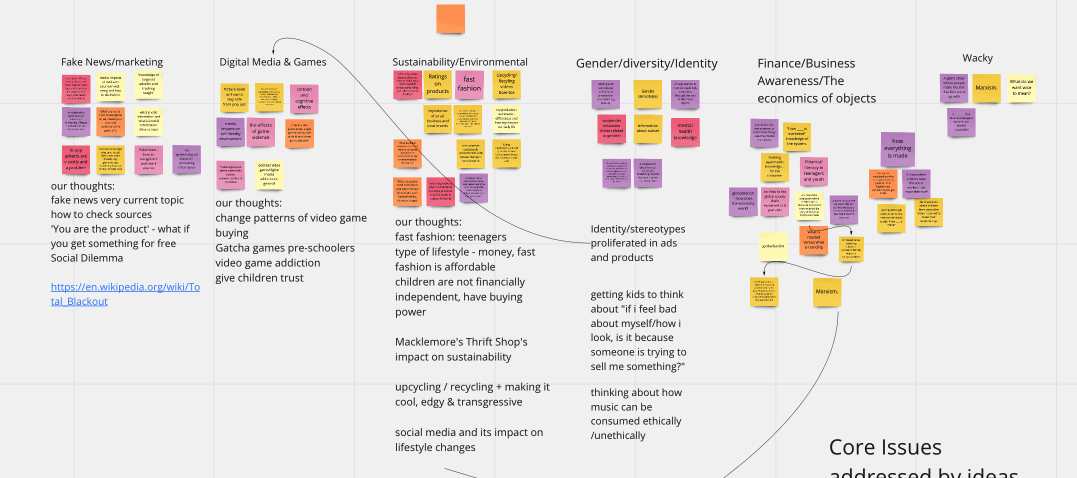HT 123: Informal Learning for Children
HT 123 is a class at the Harvard Graduate School of Education that examines Informal Learning for Children. In this class, project teams must come together to formulate an informal learning program (whether a show, app, in-person experience etc) and pitch it to a high-powered panel of Informal Learning experts.
Project Team:
Karan Hallon, Julia Pichler, Natalie Sew, Eleonor Yi, Michelle Tan
Part 1: Finding a problem to solve
As with all projects, coming up with a problem to solve was the hardest part. As a group, we had all chosen ‘Making children wiser consumers’ as an overarching problem to solve. Beyond this little snippet, we had no other mandate for what type of problem we would address.
To get our creative juices running, we started by brainstorming as many ideas as we could in a 10 minute time frame (similar to crazy 8s). We worked together on Miro to read through the ideas. Once we had read through all the ideas, we grouped them into different categories.
We individually came up with multiple ideas and then grouped our ideas into a few different buckets
Our Tentative Scope:
Mission
Helping early-phone users become wise online consumers.
Objective
To instill an understanding of how children are targeted by companies
To instill an understanding of how children receive and replicate the information that they consume
To help children make better spending decisions when it comes to digital objects (e.g. games, avatars, collectibles)
(Think about how video game companies create gambling-style micro-interactions in their video games where gamers must pay to advance in a video game)
Users
Children from the ages of 10 and 13.. We picked this age group because we consider children of this age to have enough knowledge and access to be dangerous on the internet, but not wise enough to make good decisions (don’t quote us on this).
Personally, I think of this age as the time in my childhood where I was the most impressionable and most prone to make bad decisions on the internet. Between exposing my personal information on Youtube/Facebook groups to clicking on shady pop-ups, I would have loved to have a non-condescending guide to using the internet better. As a team, we were particularly troubled with how outsize the “buying power” of teenagers is on the internet. Whereas we hypothesise that parents/caregivers play a huge role in teenagers buying clothes, books and food, no watchful eye can fully capture the kinds of things that teenagers get up to on the internet.
